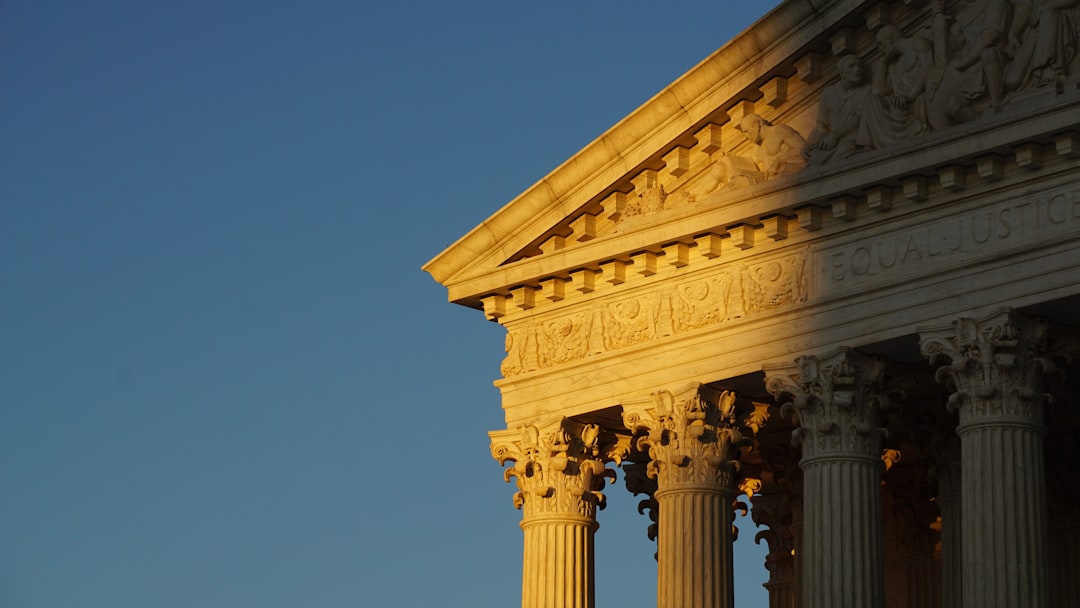Corrected: Board of Education calls snap meeting on trans sports ban on THURSDAY
Really need to look at a calendar more often!

Good morning, Alaska… [triple checks calendar this time] It’s Monday.
Editor’s note: This is the same newsletter that just went out but with the correct day for the Board of Education meeting. August 31 is Thursday, not Wednesday.
In this edition: The Board of Education announced late Friday afternoon that it will be holding a special meeting on its proposed ban on trans girls participating in girls’ sports this week, a move that comes as Gov. Mike Dunleavy—who appointed the board’s adult members—is ramping up the rhetoric on trans kids. In fact, the governor has really been leaning hard into right-wing politics lately with the manufactured brouhaha over the Ben Carson visit, his endorsement of Trump and a renewal of his attacks on public unions. Meanwhile, it looks like Kelly Tshibaka is still having trouble following the law while campaigning.
Current mood: 😡
After initial delay, Board of Education calls snap meeting on trans sports ban

The Alaska Board of Education announced late Friday afternoon it will be holding a special meeting this Wednesday Thursday to consider approval of its controversial regulations that would ban trans girls from playing on girls’ sports teams.
The board held a public hearing on the issue in late July, taking hours of public testimony that was largely opposed to the ban, and ultimately decided to delay action. Ostensibly, members said they wanted more time to consider the issues at hand. Still, most members are already on the record for supporting singling out trans girls in high school sports through a resolution passed earlier this year.
The board is not scheduled to take any further public testimony at the 1 p.m. Wednesday Thursday meeting.
At the July hearing, several members accused the public opposed to the ban of misunderstanding the issue, being rude and reading from form letters. Board member Jeff Erickson commented that delaying it would at least give the public the impression that they were giving it fair consideration.
“I’d be in favor of a special meeting and allowing us to show the public and show our constituents that we’re not just doing this to quickly rush through it,” he said, “but we want to take a long look at all of the concerns raised.”
All adult members of the Board of Education were appointed by Gov. Mike Dunleavy, who has leaned into the conservative panic over trans people during his second term. While efforts to ban trans kids from sports have failed to gain traction in the Alaska Legislature, where many members of both parties have recognized that such a ban would harm some of the state’s most vulnerable kids, Dunleavy and other far-right legislators have pushed for other areas to enact the ban.
In a letter to the Board of Education, Dunleavy reiterated his support for the ban and suggested changing the language in the proposed regulation from “females that were assigned female at birth” to “biological females.” Earlier this month, Dunleavy also amplified on social media the growing idea in conservative circles that gender-affirming care is dangerous “pseudoscience”—essentially that trans people and gender dysmorphia don’t exist but are instead the product of a conspiracy by nutty leftist doctors.
Advocates for trans kids argue that the prevalence of trans kids in Alaska sports is small and that the claimed problems of fairness and safety have never materialized. As with bans around the nation, supporters have not been able to point to real-world examples of their fears.
There’s also the matter of the legal problems with the ban. Not only do several legislators question whether the Board of Education has the power to enact such a policy through regulation, but they have warned that it likely violates the Alaska Constitution’s privacy clause by forcing kids to disclose their personal medical information to schools and equal protection because it explicitly targets trans girls.
And that’s not just guesswork.
Earlier this month, a U.S. Court of Appeals for the Ninth Circuit—whose jurisdiction includes Alaska—issued a ruling that continues to block Idaho’s ban on trans girls participating in girls’ sports, which is likely a preview of how the Alaska Board of Education’s ban would be handled. While not the final word, the ruling raises familiar privacy and equal protection issues. It also notes that the State of Idaho couldn’t even find an example of someone being harmed in any way—whether in injury or by missed opportunity—by a trans athlete’s participation.
“Because the Act subjects only women and girls who wish to participate in public school athletic competitions to an intrusive sex verification process and categorically bans transgender girls and women at all levels from competing,” the court said, “and because the State of Idaho failed to adduce any evidence demonstrating that the Act is substantially related to its asserted interests in sex equality and opportunity for women athletes, we affirm the district court’s grant of preliminary injunctive relief.”
The Alaska Memo by Matt Buxton is a reader-supported publication. To receive new posts and support my work, consider becoming a free or paid subscriber.
Gov. MAGA Dunleavy

August is usually a pretty quiet month for Alaska politics, but Gov. Mike Dunleavy turned up the heat last week. Like a student realizing they haven’t gone to class or done any homework all semester, Dunleavy crammed in the conservative high notes with a bit of pearl-clutching over Ben Carson’s apparent snub by the Anchorage School District, went on to endorse a man facing 91 criminal charges and then asked the U.S. Supreme Court for special treatment after losing his fight with public unions.
I wrote about these last week for The Alaska Current, but I wanted to hit the highlights here with some snippets from each story:
The Ben Carson visit is pure manufactured outrage
If you haven’t been on Alaska’s right-wing political blogs lately, you’ll have likely missed out on what seems to be the biggest political controversy to hit the 49th State: The Anchorage School District didn’t roll out the red carpet for, as Gov. Mike Dunleavy put it in a news release, “world renown [sic] neurosurgeon” Dr. Ben Carson.
Instead, Carson—who was in Alaska primarily for a GOP fundraiser and to hawk his right-wing education curriculum known as “Little Patriots”—made the trip out to Mat-Su with the governor and his entourage for an appearance at Iditarod Elementary School in Wasilla, then returned for a stop at the Boys and Girls Club after-school program in Anchorage’s Mountain View neighborhood.
According to reporting by the Anchorage Daily News, Education Commissioner Deena Bishop—a close Dunleavy ally—reached out to Mountain View Elementary to see about hosting an assembly for Carson. That request was forwarded to ASD Superintendent Jharrett Bryantt, who decided that perhaps the third day of the new school year wasn’t the best time for a school-wide assembly—for anyone, regardless of their credentials.
The whole brouhaha has Alaska’s far-right Republicans in a predictable uproar, calling into question Bryantt’s leadership. Far-right Anchorage Mayor Dave Bronson—who will be heading into a tough election next year and needs anything other than his deeply shady record to run on—took what would be an unusual step for any other administration by releasing a news release denouncing Bryantt’s “banning” of Carson visiting the school.
The common thread through much of the right-wing pushback is the idea that maybe some kids would have been so inspired by Carson’s brief visit that their lives would have been forever changed for the better—seemingly far more than the stable and adequate school funding opposed by Republicans like Dunleavy.
In an opinion column, Nazi-defending Eagle River Republican Rep. Jamie Allard writes that refusing to host Ben Carson—“an American hero and symbol of the American Dream”—calls into question Bryantt’s character and ability to do his job. She suggests the entire trajectory of kids’ lives may have been changed by this “inspiring encounter of that magnitude.”
It’s probably also worth pointing out that Bryantt has been particularly outspoken about the impact that underfunding schools—as Dunleavy has advocated through his veto—is having on districts, teachers and kids.
Gov. Dunleavy endorses man facing 91 criminal charges

Just days before former President Donald Trump would be sitting down for a mugshot, Gov. Mike Dunleavy announced he was endorsing the former president in his second run for president.
The news comes as a Tuesday report from Politico, which cites no named sources and includes no statement explaining the decision. Trump endorsed Dunleavy for governor in 2022 but made his endorsement conditional on the Republican not supporting Republican U.S. Sen. Lisa Murkowski in her race against Trump-backed Kelly Tshibaka.
Dunleavy courted Trump throughout his time in office on Alaska-specific issues. However, that was nowhere more intense than Dunleavy’s attempts to get federal approval for the profoundly controversial Pebble Mine. That included a visit on Air Force One, which kicked off a concerted effort to greenlight the mine before a coalition of Republican sportsmen, which ironically included Donald Trump Jr., successfully convinced the Trump administration to reverse course.
Per Politico, “The former president has been aggressively courting the support of prospective endorsees; he recently spoke by phone with Dunleavy. … Trump’s campaign plans to release a video on Tuesday thanking Dunleavy for his backing.”
No such video was posted to Trump’s Truth Social account on Tuesday; instead, it was filled with screenshots of favorable polling for the former president. Trump would surrender himself in Fulton County two days later.
Read more at The Alaska Current.
Dunleavy asks for U.S. Supreme Court help after losing fight with public unions

In a news release on Wednesday, the Dunleavy administration announced it’s asking the U.S. Supreme Court to take a direct appeal of a ruling by the Alaska Supreme Court that found the Dunleavy violated a litany of labor laws when it unilaterally interfered with the collection of public union dues early in his first term.
In the announcement, Dunleavy claims his administration’s attempts to alter how public sector union dues are collected are an effort to protect employees’ First Amendment rights rather than the attack on public unions that most, including the courts, have accused him of. His administration argues that the 2018 U.S. Supreme Court Janus decision—explicitly dealing with collecting union dues from non-union public employees—means public employees must be regularly reminded that they don’t have to be part of a union.
“Before we take any money from the paychecks of state employees, we need to ensure
that the employees were properly advised of their rights and consented to the
deduction,” said Governor Mike Dunleavy. “And if employees disagree with union
speech, they need to be given an opportunity to opt out. Our payroll system does not
adequately protect the constitutional rights of our employees and changes must be
made.”
The courts were harsh in assessing the governor’s actions, finding the administration violated several labor laws, the collective bargaining contract with unions, and affirmed a nearly half-million dollar award to the Alaska State Employees Association as part of the lawsuit. The Alaska Supreme Court also found “abundant evidence of anti-union animus” driving his actions.
While the governor claims that the First Amendment rights of public employees are driving his effort to undermine public unions, he doesn’t exactly have a sterling record regarding the free speech rights of public employees.
In a separate case, a federal judge ruled Dunleavy’s loyalty pledge firings—which required non-union public employees to sign onto Dunleavy’s political agenda if they wanted to keep their jobs when he was inaugurated—was such a severe violation of their First Amendment rights that he could be held personally responsible. The governor was spared from paying hundreds of thousands of dollars when the Department of Law settled the case, leaving the state on the hook for the settlement.
Read more at The Alaska Current.
The Alaska Memo by Matt Buxton is a reader-supported publication. To receive new posts and support my work, consider becoming a free or paid subscriber.
Looks like Kelly Tshibaka's still having trouble following the law while campaigning

In the latest campaign complaint against the former right-wing candidate for U.S. Senate, the Alaska Public Office Commission staff recommended a hefty fine against a group that Kelly Tshibaka ran for failing to register to campaign against the state's ranked-choice voting system.
Campaign regulators are recommending a $16,450 fine against Preserve Democracy for failing to register as a campaign in favor of a ballot initiative to repeal the state's voter-approved ranked-choice voting system. Whether the fines actually stick will be up to commissioners, who will meet next month. Tshibaka has already pledged to appeal the decision to the Supreme Court.
The underlying complaint was brought in July by Alaskans for Better Elections, a group that helped pass RCV and has continued to defend the measure. Its accusations were far more expansive, accusing Tshibaka of unregistered lobbying and improperly participating in local elections. Still, attorney Scott Kendall said the APOC staff report addresses the group’s primary concern.
"I'm extremely pleased since the unregistered ballot measure campaign was by far the biggest problem," he said.
Under Alaska law, people and groups who expend resources campaigning must register with APOC and disclose their expenditures and sources of income. While Preserve Democracy hasn't explicitly campaigned in support of the initiative to repeal, it was launched at the same time that the initiative was getting started. Tshibaka has publicly said that she's coordinating with that effort.
Per the staff report:
"Here, although PD’s website does not specifically mention (the ballot initiative), staff concludes, based on the timing of the creation of the website; the content of the website message; and the remarks of Ms. Tshibaka at the Bell’s Nursery and Alaska School of Government events, that PD’s website was an express communication from the date of creation through February 27, 2023, because under all the circumstances it was susceptible of no other reasonable interpretation but as an exhortation to support the (the ballot initiative) petition."
If the commission ultimately approves the fines, it'll be the second high-profile fine to land against the Republican in the course of her campaigning. In her race against Republican U.S. Sen. Lisa Murkowski, she was fined $270 for commercial fishing for a campaign video without a commercial crew license.
Stay tuned.
The Alaska Memo Newsletter
Join the newsletter to receive the latest updates in your inbox.




